These Are The 15 Unhealthiest Canned Meats You Can Buy
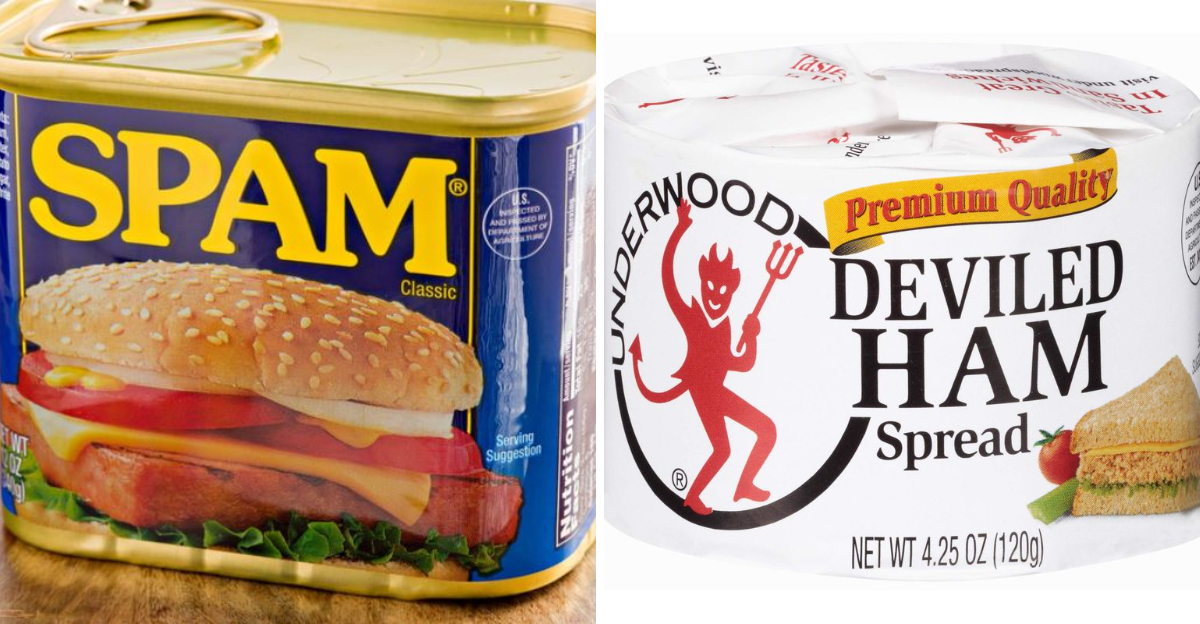
Canned meats can be a pantry lifesaver—but not all are created equal. While some offer convenience and protein, others are loaded with sodium, saturated fat, preservatives, and mystery ingredients you’d rather not pronounce. Here are 15 of the unhealthiest canned meats that might be doing more harm than good if you’re watching your health.
1. Spam (Classic)
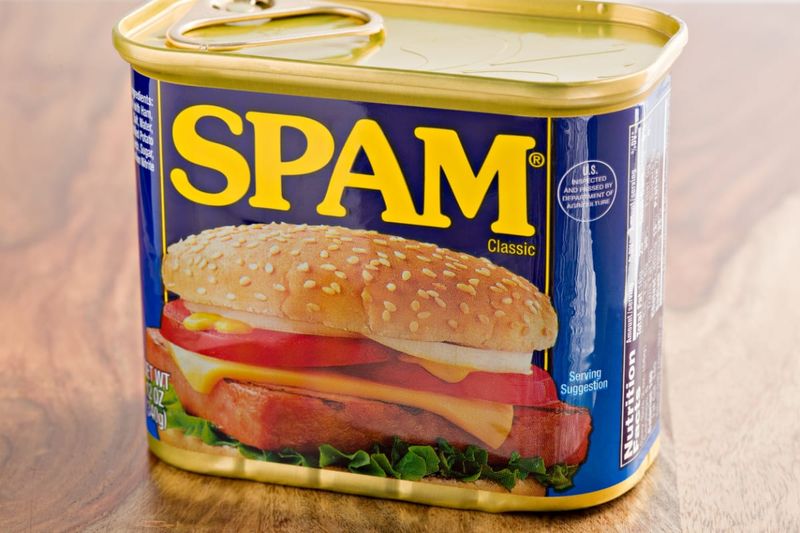
Spam’s reputation precedes it. Known for its iconic tin and easy-to-use nature, it hides a more troubling profile. Each serving of Spam contains nearly 800 mg of sodium, making it a salt overload ready to elevate your blood pressure. Add saturated fat into the mix, and you’ve got a recipe for heart health woes. The preservatives, especially sodium nitrite, contribute to its long shelf life but at a cost to your well-being. While convenient and even nostalgic for some, it might just be time to reconsider this pantry staple.
2. Vienna Sausages (Any Brand)

Vienna sausages seem harmless, yet they pack a punch in the salt department. These tiny tubes of mystery meat are ensconced in a salty broth, resulting in high sodium levels that can affect your heart. They’re not just low in quality protein, but also rich in fat, which isn’t ideal for a balanced diet. Despite their convenience, these sausages are filled with preservatives that extend shelf life but compromise health. If you’re health-conscious, you might want to give these a pass and opt for fresher alternatives.
3. Canned Corned Beef Hash
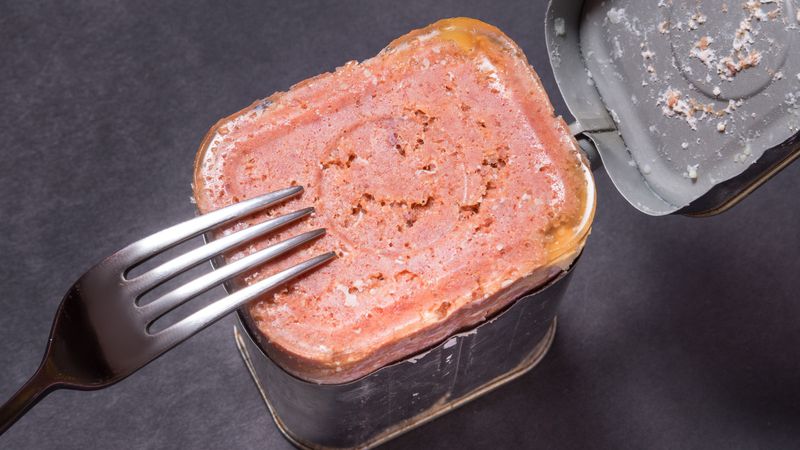
A hearty breakfast option, but not without its pitfalls. Canned corned beef hash is often a fusion of excessive fats and sodium, overshadowing its meat content. In just one sitting, it can surpass 60% of your daily saturated fat intake, making it a less than ideal start to the day. The enticing aroma and comfort it provides come at the cost of your health. Its composition leans heavily on unhealthy fats, pushing aside the benefits of protein it might offer. Consider alternatives for a healthier morning routine.
4. Deviled Ham Spread
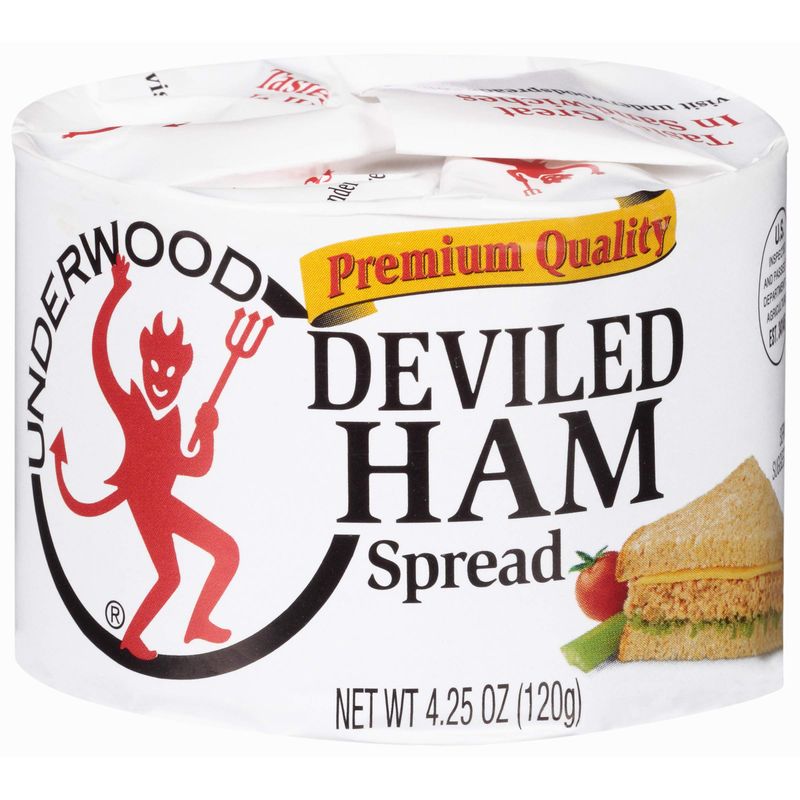
Deviled ham spread might seem like a flavorful addition to snacks, yet it’s a sodium-laden choice. With over 1,000 mg of sodium per serving, it’s more a spreadable salt than meat. The texture and taste come from a heavy dose of sugar and preservatives that might appeal to taste buds but not to health. Though it offers convenience for quick snacks, the processing involved leaves much to be desired for those watching their sodium intake. With its enticing packaging, it’s easy to overlook its less-than-healthy contents.
5. Potted Meat
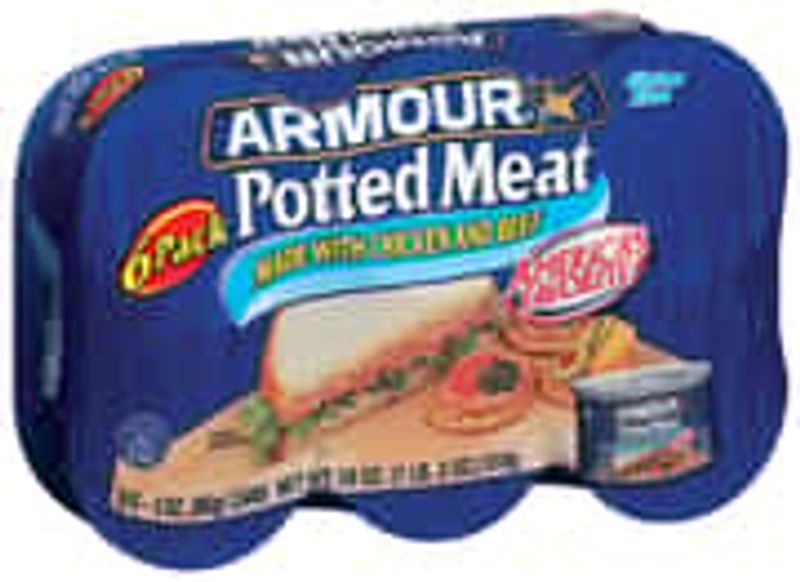
Potted meat appears simple, yet it is a collage of meat byproducts and preservatives. Its mushy texture is off-putting to some, but it’s the fat and sodium content that should be the real concern. High in both, this product sacrifices health for shelf stability. The list of ingredients reads more like a chemistry set than a food item. While it offers an easy spread for sandwiches, it falls short on providing nutritional benefits. For those caring for their heart health, it’s a pantry item to reconsider.
6. Canned Chicken Spread
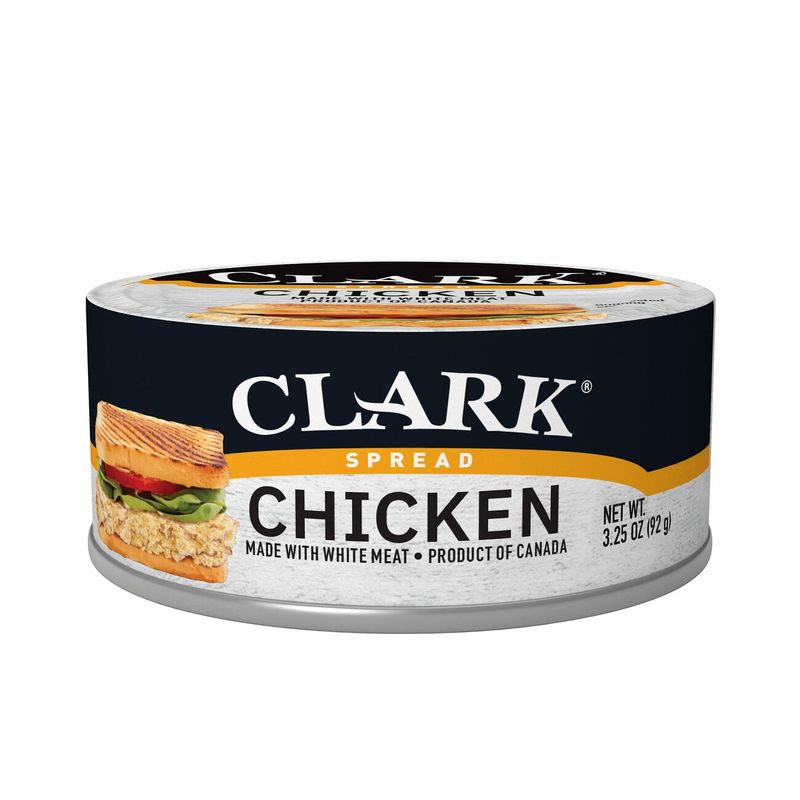
Canned chicken spread might sound like an easy protein source, yet it often disappoints. Filled with stabilizers and oils, it contains barely any real chicken, replacing flavor with fillers. The result is a spread that’s more about texture than taste, offering little nutritional value. While it might serve as a quick sandwich filler, its composition leans heavily on additives. Those looking for a genuine chicken taste and health benefits might want to turn to fresher, more substantial alternatives.
7. Canned Roast Beef in Gravy
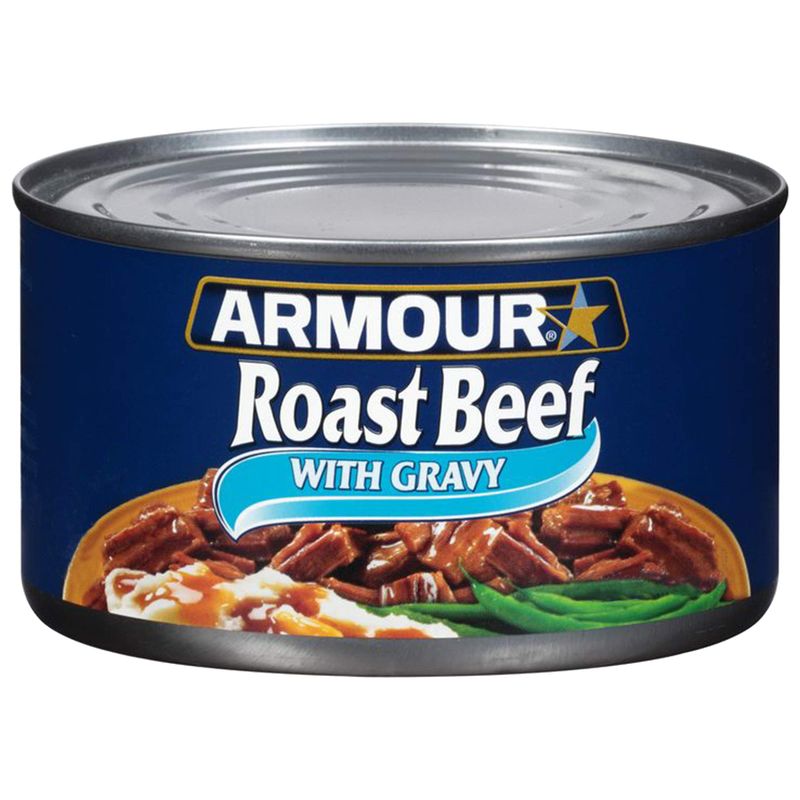
Canned roast beef in gravy promises a hearty meal, yet often underdelivers on nutrition. The thickened, salty sauce masks the overcooked and fatty meat chunks inside. With sodium content ranging from 600 to 900 mg per serving, it skews towards an unhealthy option. While it might offer convenience, the nutritional compromise is significant. The appeal of a ready-made meal is overshadowed by the health drawbacks. Opting for fresh or low-sodium alternatives can provide the comfort without the health risks.
8. Canned Meatballs in Sauce
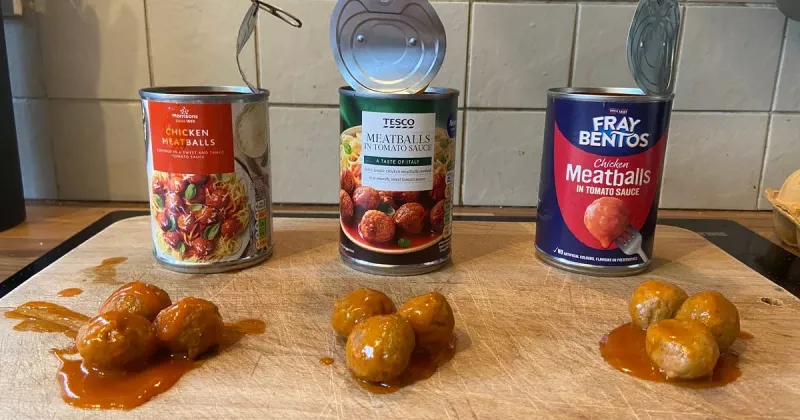
Meatballs in sauce from a can might seem like a handy dinner fix, yet they carry hidden concerns. The sugary sauce and fatty meatballs contribute to high calorie intake with minimal protein. Additives are abundant, overshadowing any nutritional benefits. Though convenient for a quick pasta topping, they lack the quality of fresh meat. Health-conscious individuals might find these more of a hindrance than help. Exploring homemade options can offer a better balance of flavor and nutrition without the excess additives.
9. Canned BBQ Pulled Pork
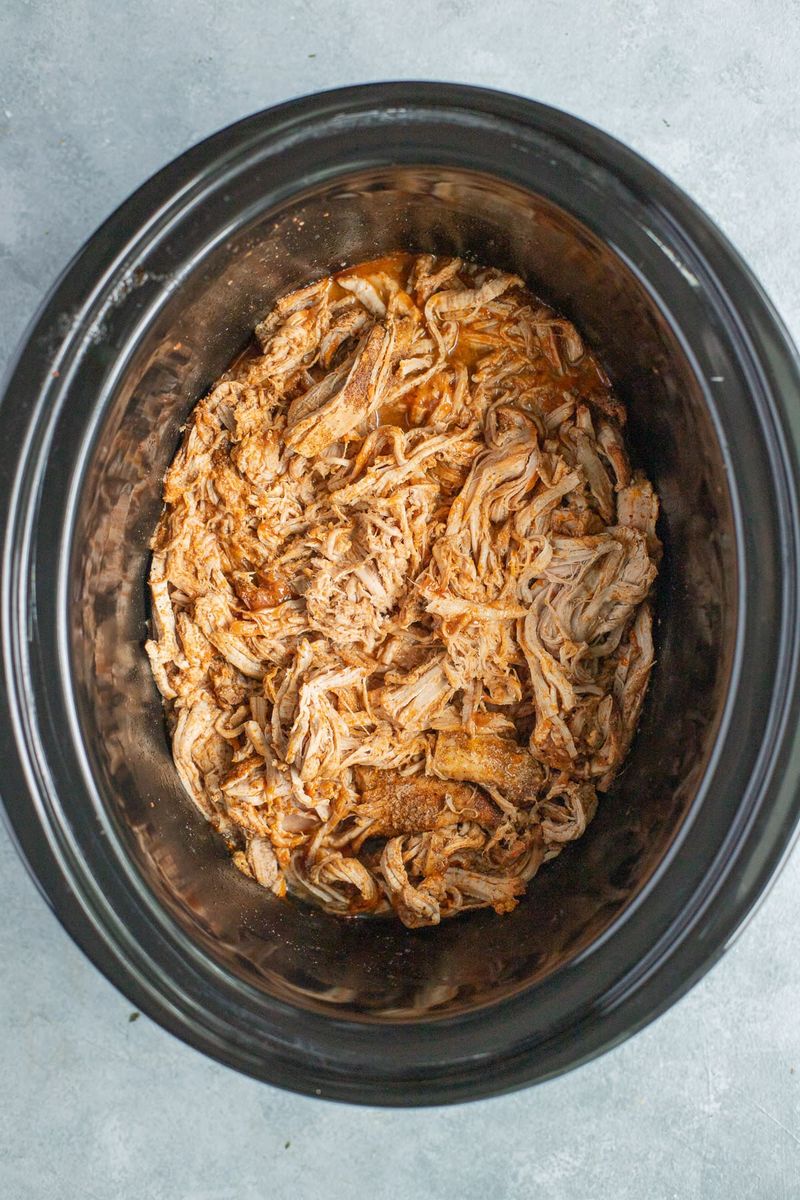
BBQ pulled pork sounds delectable, yet the canned version often falls short. Laden with added sugars, sodium, and artificial smoke flavors, it leans more towards an unhealthy indulgence. The use of cheap meat cuts further diminishes its nutritional value. While it might remind one of summer barbecues, the health implications are substantial. The enticing aroma and taste are marred by its unhealthy profile. For those watching their diet, it’s wise to stick with homemade versions that offer more control over ingredients.
10. Canned Chili with Meat
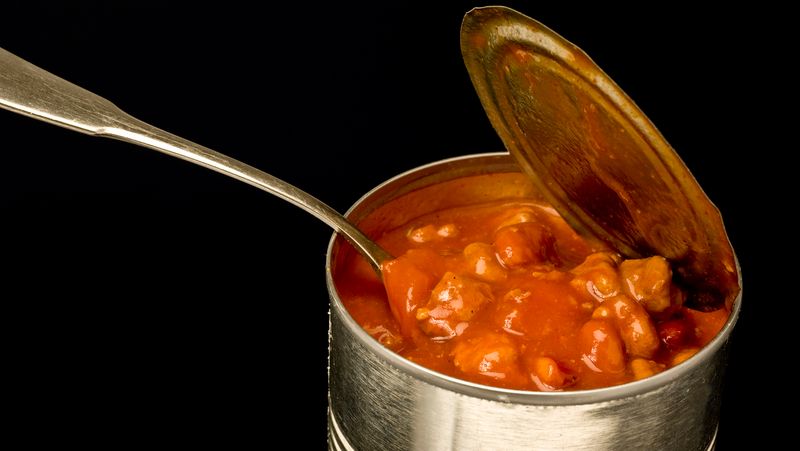
Canned chili with meat promises warmth and flavor, but watch out for its sodium levels. Some varieties pack nearly 1,000 mg of sodium per cup, alongside added fats and starches. The meat, often not lean, adds to the caloric content without significant nutritional benefit. While convenient for a quick meal, the health drawbacks can be a concern. For those seeking both taste and nutrition, exploring homemade chili recipes might be a rewarding alternative, ensuring a balance of flavor without the excessive sodium.
11. Canned Luncheon Loaf (Off-Brand Spam Variants)

Luncheon loafs are often seen as budget-friendly, but the health trade-off is steep. These off-brand Spam variants can have higher fat content and fewer quality controls. The recognizable flavor is overshadowed by the questionable ingredients inside. Though they offer a slice of nostalgia, they’re not the best for heart health. Their ease of use doesn’t compensate for the health risks posed by the preservatives and fats within. Opting for fresher, healthier alternatives can provide the same convenience without the health compromise.
12. Canned Duck or Goose Liver Pâté (Cheap Versions)

Duck or goose liver pâté sounds luxurious, but the cheaper canned variants often spell trouble for health. These versions tend to contain fillers, stabilizers, and sky-high cholesterol and saturated fat levels. The rich taste comes at a significant health cost. While it might seem like a treat, the nutritional profile is less than ideal. For those mindful of their diet, choosing fresh and artisanal options might offer both the taste and health benefits desired. This way, indulgence doesn’t have to mean compromise.
13. Canned Chicken & Dumplings

Chicken and dumplings in a can evoke comfort food memories, but the reality is different. The dumplings are mostly doughy carbs soaked in salty gravy, with scarce and overprocessed chicken pieces. The sodium content can be alarmingly high, making it a less than optimal choice for heart health. While it provides convenience, the lack of real nutrition is evident. For a comforting meal without the health risks, homemade options using fresh ingredients can offer both taste and nutritional value.
14. Canned Hot Dogs (Yes, They Exist)
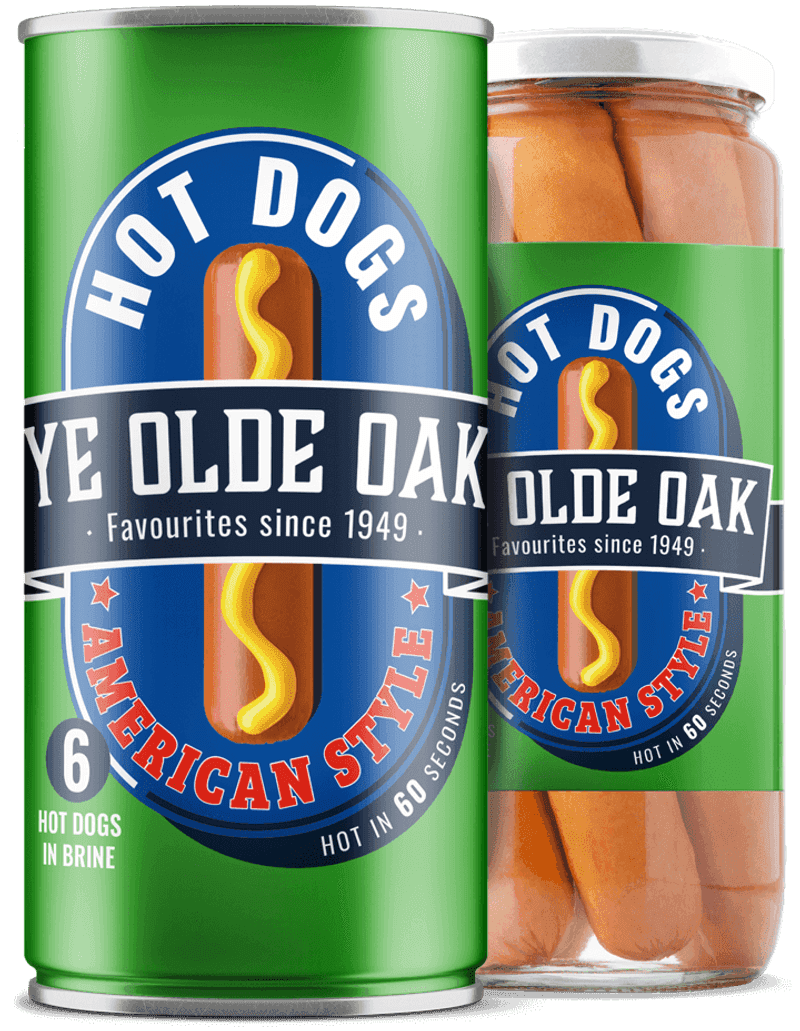
Canned hot dogs might raise eyebrows, yet they exist and pose health concerns. High in sodium and fat, they’re a far cry from the quality one might hope for. The preservatives involved make them more about shelf life than nutritional value. While the novelty might intrigue, the health implications are significant. For those seeking a traditional hot dog experience, fresh options on the grill offer more flavor without the excess sodium and preservatives. It’s a reminder that not all canned options are created equal.
15. Canned Turkey with Gravy
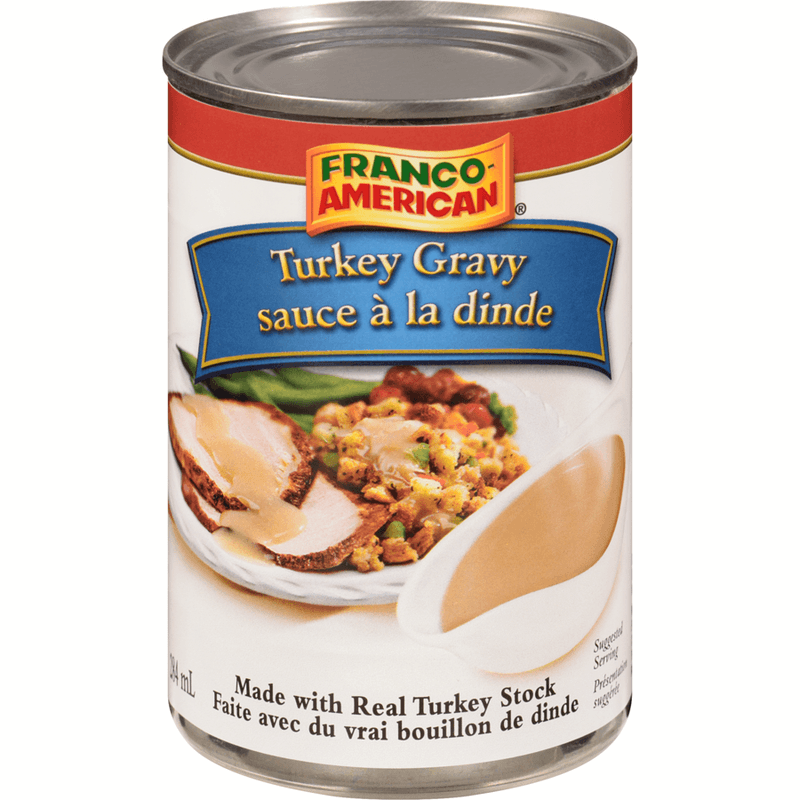
Canned turkey with gravy sounds inviting, especially during the holidays, but often disappoints. The gravy tends to be overly gelatinous, with rubbery meat that fails to deliver the expected festive delight. High in sodium, it trades convenience for health. While it aims to evoke holiday cheer, the reality is far from joyful for those mindful of their diet. Choosing fresh turkey options can ensure both taste and health benefits, making celebrations truly special without compromising well-being.
